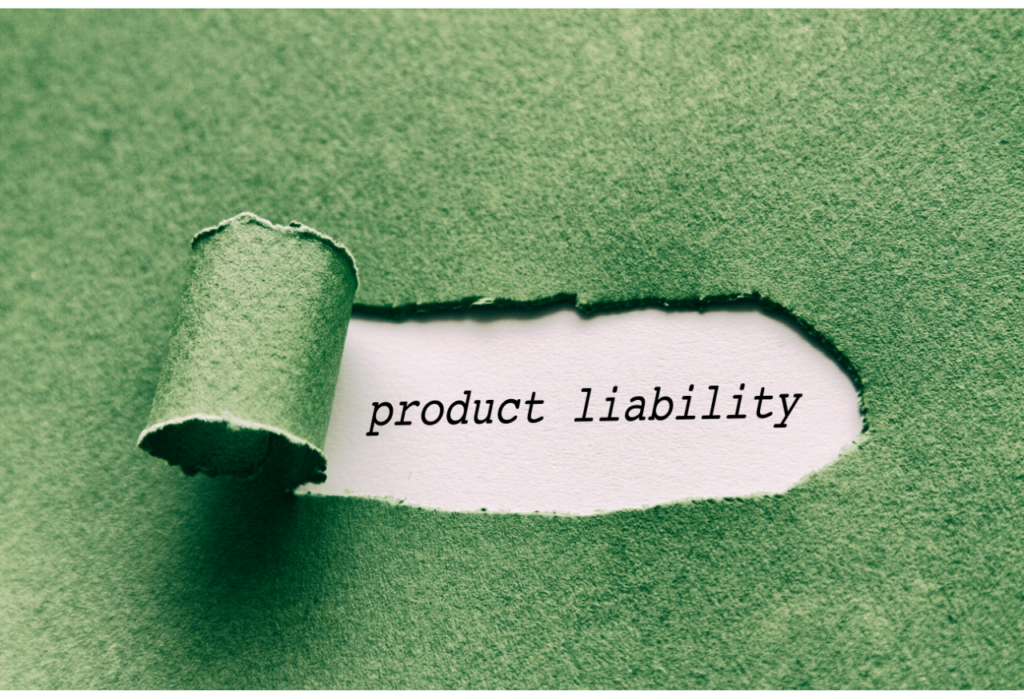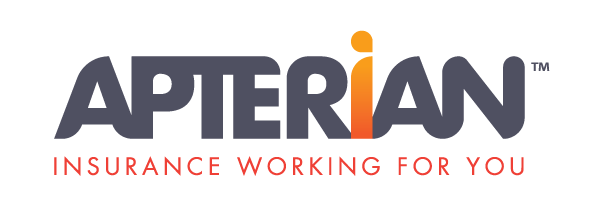
General Liability Insurance
Business General Liability Insurance is a fundamental type of insurance policy designed to protect businesses from a wide range of liabilities that may arise during their operations. This coverage offers financial protection against claims of bodily injury, property damage, personal injury, and advertising injury brought by third parties. The importance of General Liability Insurance include:
Protection Against Lawsuits: Business General Liability Insurance shields companies from the financial impact of lawsuits filed against them by third parties. This includes claims arising from accidents, injuries, or damages caused by the business’s operations, products, or services.
Coverage for Bodily Injury and Property Damage: This insurance provides coverage for medical expenses, legal fees, and compensation for third parties if they suffer bodily injury or property damage due to the business’s actions or negligence. For example, if a customer slips and falls in a retail store, this coverage would help pay for their medical bills and any resulting legal expenses.
Property Owners’ Protection: For businesses that own or lease property, General Liability Insurance protects against claims of bodily injury or property damage that occur on their premises. It covers incidents such as slip-and-fall accidents, injuries caused by unsafe conditions, or damage to third-party property.
Contractual Requirement: Many contracts, leases, or agreements with clients, landlords, or vendors require businesses to carry General Liability Insurance. Compliance with these requirements is essential to maintain business relationships and legal obligations.
Protection for Advertising Injury: General Liability Insurance covers claims of advertising injury, including libel, slander, copyright infringement, or false advertising. This protects businesses from financial losses resulting from claims of damage to a third party’s reputation or intellectual property rights due to their advertising activities.
Business Continuity: In the event of a covered claim, General Liability Insurance helps businesses continue operations by covering the costs of legal defense, settlements, or judgments. This prevents financial setbacks that could disrupt business operations or lead to closure.
Enhanced Professional Image: Having General Liability Insurance can enhance a business’s credibility and professional image. It demonstrates to clients, partners, and customers that the business is responsible, prepared to address liabilities, and committed to protecting their interests.
In summary, Business General Liability Insurance is crucial for businesses as it provides essential financial protection against a wide range of liabilities, helping to safeguard assets, mitigate risks, and ensure business continuity in the face of unforeseen events or legal challenges.
Business Interruption Insurance
Business Interruption Insurance is a type of insurance coverage designed to provide financial protection to businesses in the event of a disruption or interruption to their normal operations due to covered perils such as fire, natural disasters, or other unforeseen events. This coverage helps businesses recover lost income, pay ongoing expenses, and mitigate financial losses resulting from the temporary closure or suspension of operations. The importance of Business Interruption Insurance include:
Replacement of Lost Income: Business Interruption Insurance helps replace lost income that a business would have earned if it had been able to operate normally. This includes revenue lost due to the closure of the business, as well as ongoing expenses that continue during the interruption period, such as rent, utilities, and payroll.

Continuation of Fixed Costs: During a business interruption, fixed costs such as rent, utilities, insurance premiums, and loan payments continue even if the business is unable to generate revenue. Business Interruption Insurance helps cover these ongoing expenses, reducing the financial strain on the business owner.
Coverage for Extra Expenses: In addition to replacing lost income and covering fixed costs, Business Interruption Insurance may also provide coverage for extra expenses incurred by the business to minimize the impact of the interruption. This can include expenses related to temporary relocation, equipment rentals, or advertising to attract customers back to the business once it reopens.
Protection Against Supply Chain Disruptions: Business Interruption Insurance can also provide coverage for disruptions to the business’s supply chain caused by events such as natural disasters, fires, or other catastrophic events. This coverage helps businesses recover from disruptions to their suppliers, distributors, or manufacturers and resume operations more quickly.
Risk Mitigation: Having Business Interruption Insurance in place helps businesses mitigate the financial risks associated with unexpected interruptions to their operations. It provides a safety net that allows businesses to weather temporary setbacks without facing financial ruin or bankruptcy.
Business Continuity Planning: Business Interruption Insurance encourages businesses to develop and implement comprehensive business continuity plans to minimize the impact of interruptions and ensure a swift recovery. By having this coverage in place, businesses are better prepared to respond to emergencies and resume operations as quickly as possible.
Overall, Business Interruption Insurance is essential for businesses of all sizes as it provides vital financial protection against the economic consequences of disruptions to their operations. It helps businesses maintain financial stability, minimize losses, and recover more quickly from unexpected events, ensuring their long-term viability and success.

Professional Liability Insurance (Errors & Omissions Insurance)
Professional Liability Insurance, also known as Errors & Omissions (E&O) Insurance, is a type of insurance coverage designed to protect professionals and businesses from claims of negligence, errors, or omissions in the services they provide. This insurance provides financial protection against lawsuits alleging that the insured’s professional advice, services, or work product caused financial harm or losses to clients or third parties. The importance of Professional Liability Insurance include:
Protection Against Lawsuits: Professional Liability Insurance protects professionals and businesses from the financial consequences of lawsuits brought against them by clients or third parties. These lawsuits may allege errors, omissions, negligence, or failure to perform professional duties, resulting in financial losses or damages.
Coverage for Legal Expenses: Professional Liability Insurance covers legal fees, court costs, and settlement or judgment expenses associated with defending against claims of professional negligence or errors. This coverage helps protect the insured’s assets and financial stability in the event of a lawsuit.
Financial Reimbursement for Damages: If a judgment or settlement is reached against the insured in a professional liability lawsuit, the insurance policy provides coverage for damages awarded to the claimant. This helps mitigate the financial impact on the insured and ensures that they can meet their financial obligations without facing bankruptcy or severe financial hardship.
Risk Management: Having Professional Liability Insurance in place encourages professionals and businesses to implement risk management practices and standards to minimize the likelihood of errors, omissions, or negligence in their professional services. It promotes accountability, professionalism, and quality assurance within the industry.
Client Confidence and Trust: Clients often expect professionals to carry Professional Liability Insurance as a sign of accountability, competence, and commitment to protecting their interests. Having this coverage can enhance a professional’s credibility, inspire confidence in their services, and build trust with clients.
Contractual Requirement: Many clients, contracts, or regulatory bodies require professionals to carry Professional Liability Insurance as a condition of doing business. Compliance with these requirements is essential to maintain business relationships, secure contracts, or obtain professional licenses.
Industry Standards and Best Practices: Professional Liability Insurance helps set industry standards and best practices by promoting responsible and ethical behavior among professionals. It encourages continuous learning, professional development, and adherence to professional standards of care and conduct.
Overall, Professional Liability Insurance is essential for professionals and businesses providing professional services as it provides vital financial protection against the risks and liabilities associated with errors, omissions, or negligence in their work. It helps protect their assets, reputation, and long-term success, ensuring that they can continue to serve their clients effectively and responsibly.
Workers’ Compensation Insurance
Workers’ Compensation Insurance is a type of insurance coverage designed to provide financial protection for employees who suffer work-related injuries or illnesses. This insurance provides benefits to employees for medical expenses, lost wages, and rehabilitation costs resulting from workplace accidents or occupational diseases. In exchange for receiving these benefits, employees typically waive their right to sue their employers for negligence. The importance of Workers’ Compensation Insurance include:
Medical Coverage: Workers’ Compensation Insurance covers the cost of medical treatment and care for employees who suffer work-related injuries or illnesses. This includes expenses such as hospital bills, doctor’s fees, medication, rehabilitation, and ongoing medical care needed to recover from the injury or illness.

Income Replacement: Workers’ Compensation Insurance provides partial wage replacement benefits to employees who are unable to work due to a work-related injury or illness. These benefits help replace a portion of the employee’s lost income, providing financial support during their recovery period.
Disability Benefits: Workers’ Compensation Insurance may provide disability benefits to employees who suffer permanent or temporary disabilities as a result of a work-related injury or illness. These benefits help compensate employees for the loss of earning capacity and quality of life resulting from their disability.
Death Benefits: In the unfortunate event that a work-related injury or illness results in the death of an employee, Workers’ Compensation Insurance provides death benefits to the employee’s dependents. These benefits help support the employee’s surviving spouse, children, or other dependents by providing financial assistance to cover funeral expenses and ongoing living expenses.
Legal Protection: Workers’ Compensation Insurance provides legal protection to employers by shielding them from lawsuits filed by employees for workplace injuries or illnesses. In exchange for receiving Workers’ Compensation benefits, employees typically waive their right to sue their employers for negligence, reducing the risk of costly legal disputes and liability claims.
Compliance with Legal Requirements: In many jurisdictions, employers are legally required to carry Workers’ Compensation Insurance to provide financial protection for their employees in case of work-related injuries or illnesses. Compliance with these legal requirements helps employers avoid penalties, fines, and legal liabilities.
Employee Morale and Loyalty: Providing Workers’ Compensation Insurance demonstrates a commitment to the health, safety, and well-being of employees. This can enhance employee morale, loyalty, and job satisfaction, leading to higher productivity, lower turnover rates, and a positive work environment.
Overall, Workers’ Compensation Insurance is essential for employers as it provides vital financial protection for employees who suffer work-related injuries or illnesses. It helps ensure that employees receive timely medical care, income replacement, and support during their recovery, while also protecting employers from costly legal disputes and liabilities.

Commercial Auto Insurance
Commercial Auto Insurance is a specialized type of insurance coverage designed to provide financial protection for vehicles used for business purposes. This insurance covers vehicles owned or operated by a business and offers protection against various risks and liabilities associated with commercial vehicle operations. The importance of Commercial Auto Insurance include:
Legal Compliance: Commercial Auto Insurance helps businesses comply with legal requirements mandating insurance coverage for vehicles used for business purposes. In many jurisdictions, businesses are required to carry minimum levels of liability insurance to operate commercial vehicles legally.
Financial Protection: Commercial Auto Insurance provides financial protection for businesses against the costs associated with accidents, collisions, or other incidents involving commercial vehicles. This includes coverage for vehicle repairs, medical expenses, property damage, and legal expenses resulting from accidents or liability claims.
Coverage for Employees: Commercial Auto Insurance covers employees who drive company-owned vehicles or use their personal vehicles for business purposes. It provides liability coverage for injuries or damages caused by employees while driving on behalf of the business, protecting both the business and its employees from financial liability.
Protection for Business Assets: Commercial Auto Insurance helps protect the financial assets of businesses by covering the costs of repairing or replacing commercial vehicles damaged or destroyed in accidents, theft, vandalism, or natural disasters. This helps minimize financial losses and ensures that businesses can continue operations without interruption.
Liability Coverage: Commercial Auto Insurance includes liability coverage, which protects businesses from legal responsibility for injuries or property damage caused by their commercial vehicles. It covers legal fees, court costs, settlements, and judgments resulting from lawsuits or liability claims filed against the business.
Customized Coverage Options: Commercial Auto Insurance policies offer a range of customizable coverage options tailored to the specific needs of businesses, including coverage for different types of vehicles, cargo, equipment, and specialized commercial operations. This allows businesses to choose coverage that aligns with their unique risks and requirements.
Enhanced Business Reputation: Having Commercial Auto Insurance demonstrates to clients, partners, and stakeholders that the business is responsible, reliable, and committed to protecting the safety and well-being of its employees, customers, and the public. This can enhance the business’s reputation and credibility in the marketplace.
Overall, Commercial Auto Insurance is essential for businesses that use vehicles for commercial purposes as it provides vital financial protection against the risks and liabilities associated with commercial vehicle operations. It helps businesses comply with legal requirements, protect their assets, and mitigate financial losses resulting from accidents or liability claims, ensuring the long-term success and sustainability of the business.
Directors and Officers (D&O) Insurance
Directors and Officers (D&O) Insurance is a specialized type of liability insurance designed to provide financial protection to directors, officers, and executives of corporations or organizations against personal financial losses arising from claims of wrongful acts committed in their roles as corporate leaders. This insurance coverage typically protects individuals against lawsuits alleging acts of negligence, errors, omissions, breaches of duty, mismanagement, or other wrongful acts in the performance of their duties. The importance of Directors and Officers (D&O) Insurance include:
Protection for Corporate Leaders: D&O Insurance provides financial protection to directors, officers, and executives against personal liability for claims arising from their management decisions or actions taken in the course of their duties. This coverage helps safeguard their personal assets, savings, and financial well-being in the event of lawsuits or legal disputes.

Recruitment and Retention: Offering D&O Insurance can help attract and retain qualified directors and officers by providing them with reassurance that they will be protected against personal financial losses resulting from their roles as corporate leaders. This can enhance recruitment efforts and strengthen the leadership team of the organization.
Risk Management: D&O Insurance encourages directors and officers to make informed decisions, exercise due diligence, and act in the best interests of the corporation or organization. Knowing that they are protected against personal liability can empower corporate leaders to take calculated risks and make strategic decisions without fear of personal financial consequences.
Legal Defense Costs: D&O Insurance covers the costs of legal defense, including legal fees, court costs, and settlements or judgments resulting from lawsuits or legal actions brought against directors and officers. This coverage helps protect their personal assets and financial resources from being depleted by legal expenses associated with defending against claims of wrongful acts.
Protection Against Shareholder Lawsuits: D&O Insurance protects directors and officers from lawsuits filed by shareholders, investors, creditors, regulatory agencies, or other stakeholders alleging breaches of fiduciary duty, securities fraud, corporate governance violations, or other wrongful acts. This coverage helps mitigate the financial risks and liabilities associated with corporate governance and shareholder litigation.
Corporate Reputation: Having D&O Insurance in place demonstrates to shareholders, investors, business partners, and stakeholders that the organization is committed to protecting its leadership team and maintaining corporate governance standards. This can enhance the organization’s reputation, credibility, and trustworthiness in the marketplace.
Compliance with Legal Requirements: In many jurisdictions, corporations or organizations are required by law or regulatory authorities to provide indemnification and liability protection for their directors and officers. D&O Insurance helps fulfill these legal requirements and ensures compliance with corporate governance standards and regulations.
Overall, D&O Insurance is essential for corporations and organizations as it provides vital financial protection to directors, officers, and executives against personal liability for wrongful acts committed in the course of their duties. It helps protect their personal assets, mitigate financial risks, and safeguard their reputation, ensuring effective corporate governance and leadership oversight.

Product Liability Insurance
Product Liability Insurance is a type of insurance coverage designed to protect businesses from financial losses resulting from claims of injury or property damage caused by products they manufacture or sell. This insurance provides coverage for legal defense costs, settlements, judgments, and other expenses associated with product liability lawsuits. The importance of Product Liability Insurance include:
Financial Protection: Product Liability Insurance provides financial protection to businesses against the costs associated with defending against lawsuits alleging injuries or damages caused by their products. This coverage helps businesses mitigate the financial risks and liabilities associated with product defects, errors, or failures.
Legal Defense Costs: Product liability lawsuits can be expensive to defend, involving legal fees, court costs, expert witness fees, and other litigation expenses. Product Liability Insurance covers these legal defense costs, allowing businesses to hire experienced attorneys and mount a robust defense against claims of product-related injuries or damages.
Coverage for Damages: If a judgment or settlement is reached against the business in a product liability lawsuit, Product Liability Insurance provides coverage for damages awarded to the claimant. This includes compensation for medical expenses, lost income, pain and suffering, property damage, and other losses resulting from the defective product.
Protection for Manufacturers and Sellers: Product Liability Insurance protects both manufacturers and sellers of products from liability for injuries or damages caused by their products. This coverage applies to businesses involved in all stages of the product supply chain, including design, manufacturing, distribution, and retail.
Risk Management: Having Product Liability Insurance in place encourages businesses to implement risk management practices and quality control measures to minimize the risk of product defects, errors, or failures. It promotes accountability, safety, and product quality within the industry.
Consumer Confidence and Trust: Product Liability Insurance demonstrates to consumers, customers, and stakeholders that the business stands behind its products and is prepared to take responsibility for any defects or issues that may arise. This can enhance consumer confidence, trust, and brand reputation in the marketplace.
Compliance with Legal Requirements: In many jurisdictions, businesses may be legally required to carry Product Liability Insurance to protect consumers from injuries or damages caused by defective products. Compliance with these legal requirements helps businesses avoid penalties, fines, and legal liabilities.
Overall, Product Liability Insurance is essential for businesses that manufacture, distribute, or sell products as it provides vital financial protection against the risks and liabilities associated with product-related injuries or damages. It helps businesses protect their assets, reputation, and long-term viability while ensuring consumer safety and satisfaction.
Employment Practices Liability Insurance (EPLI)
Employment Practices Liability Insurance (EPLI) is a specialized type of insurance coverage designed to protect businesses from financial losses resulting from claims of wrongful employment practices. This insurance provides coverage for legal defense costs, settlements, judgments, and other expenses associated with lawsuits alleging discrimination, harassment, wrongful termination, retaliation, or other violations of employment laws. The importance of Employment Practices Liability Insurance include:
Financial Protection: EPLI provides financial protection to businesses against the costs associated with defending against lawsuits alleging violations of employment laws or wrongful employment practices. This coverage helps mitigate the financial risks and liabilities associated with employment-related litigation.

Legal Defense Costs: Employment-related lawsuits can be expensive to defend, involving legal fees, court costs, expert witness fees, and other litigation expenses. EPLI covers these legal defense costs, allowing businesses to hire experienced attorneys and mount a robust defense against claims of employment discrimination, harassment, or wrongful termination.
Coverage for Damages: If a judgment or settlement is reached against the business in an employment-related lawsuit, EPLI provides coverage for damages awarded to the claimant. This includes compensation for lost wages, emotional distress, punitive damages, and other losses resulting from the wrongful employment practices.
Protection for Employers: EPLI protects employers from liability for claims of discrimination, harassment, retaliation, wrongful termination, or other violations of employment laws brought by current or former employees. This coverage applies to businesses of all sizes and industries, including employers in both the public and private sectors.
Risk Management: Having EPLI in place encourages businesses to implement risk management practices and establish policies and procedures to prevent and address workplace discrimination, harassment, and other employment-related issues. It promotes compliance with employment laws, ethical conduct, and a positive work environment.
Protection for Directors and Officers: EPLI may also provide coverage for claims brought against directors, officers, or executives of the company alleging wrongful employment practices or failure to fulfill their fiduciary duties related to employment matters. This coverage helps protect corporate leaders from personal liability for employment-related claims.
Enhanced Employer Reputation: EPLI demonstrates to employees, customers, investors, and stakeholders that the business is committed to maintaining fair and equitable employment practices and treating employees with dignity and respect. This can enhance the employer’s reputation, attract top talent, and improve employee morale and retention.
Overall, Employment Practices Liability Insurance is essential for businesses as it provides vital financial protection against the risks and liabilities associated with employment-related claims. It helps businesses protect their assets, reputation, and long-term success while promoting compliance with employment laws and fostering a positive work environment.

Fidelity Bonds (Employee Dishonesty Insurance)
Fidelity Bonds, also known as Employee Dishonesty Insurance, are a type of insurance coverage designed to protect businesses from financial losses resulting from dishonest or fraudulent acts committed by employees. These bonds provide coverage for losses caused by employee theft, embezzlement, fraud, or other dishonest conduct. The importance of Fidelity Bonds/Employee Dishonesty Insurance include:
Financial Protection: Fidelity Bonds provide financial protection to businesses against the costs associated with employee dishonesty or fraud. This coverage helps mitigate the financial risks and liabilities associated with losses resulting from theft, embezzlement, or other fraudulent activities committed by employees.
Coverage for Employee Theft: Fidelity Bonds cover losses resulting from theft, embezzlement, misappropriation of funds, or other dishonest acts committed by employees. This includes coverage for stolen cash, inventory, equipment, securities, or other valuable assets belonging to the business.
Legal Defense Costs: If legal action is taken against the business or its employees as a result of employee dishonesty or fraud, Fidelity Bonds provide coverage for legal defense costs, including legal fees, court costs, and other litigation expenses. This helps protect the business’s assets and financial resources from being depleted by legal expenses associated with defending against claims of employee dishonesty.
Coverage for Third-Party Losses: Fidelity Bonds may also provide coverage for losses suffered by third parties, such as customers, clients, suppliers, or other stakeholders, as a result of employee dishonesty or fraud. This coverage helps protect the business’s reputation and relationships with stakeholders by providing financial compensation for losses caused by employee misconduct.
Risk Management: Having Fidelity Bonds in place encourages businesses to implement risk management practices and internal controls to prevent and detect employee dishonesty or fraud. It promotes accountability, transparency, and ethical conduct within the organization, reducing the likelihood of losses due to employee misconduct.
Enhanced Credibility: Fidelity Bonds demonstrate to customers, clients, investors, and stakeholders that the business takes proactive measures to protect its assets and mitigate the risks associated with employee dishonesty. This can enhance the business’s credibility, trustworthiness, and reputation in the marketplace.
Compliance with Regulatory Requirements: In some industries or jurisdictions, businesses may be required by law or regulatory authorities to carry Fidelity Bonds as a condition of licensure, certification, or compliance with industry standards. Compliance with these legal requirements helps businesses avoid penalties, fines, and legal liabilities.
Overall, Fidelity Bonds are essential for businesses as they provide vital financial protection against the risks and liabilities associated with employee dishonesty or fraud. They help businesses safeguard their assets, reputation, and long-term success while promoting ethical conduct and compliance with regulatory requirements.
Commercial Umbrella Insurance
Commercial Umbrella Insurance is a type of liability insurance that provides additional coverage beyond the limits of a company’s primary liability insurance policies, such as General Liability Insurance, Auto Liability Insurance, or Employers Liability Insurance. It acts as an extra layer of protection against catastrophic losses or large liability claims that exceed the limits of the underlying insurance policies. The importance of Commercial Umbrella Insurance include:
Increased Liability Coverage: Commercial Umbrella Insurance provides additional liability coverage above and beyond the limits of the primary insurance policies. This extra coverage helps protect businesses against the financial consequences of large liability claims, catastrophic losses, or lawsuits that exceed the limits of their primary insurance coverage.

Protection Against Financial Ruin: In the event of a major lawsuit or catastrophic loss, businesses may face significant financial liabilities that exceed the limits of their primary insurance policies. Commercial Umbrella Insurance helps protect businesses from financial ruin by providing additional coverage to cover the excess liability amounts not covered by the primary policies.
Cost-Effective Solution: Commercial Umbrella Insurance is a cost-effective way for businesses to increase their liability coverage without having to significantly increase the limits of their primary insurance policies. By purchasing umbrella coverage, businesses can obtain higher levels of protection at a fraction of the cost of increasing the limits of their primary policies.
Coverage for Multiple Policies: Commercial Umbrella Insurance can provide coverage for multiple underlying insurance policies, including General Liability, Auto Liability, Employers Liability, and others. This makes it a versatile solution for businesses with diverse insurance needs, offering additional protection across various areas of liability.
Legal Defense Costs: Commercial Umbrella Insurance typically covers legal defense costs in addition to the liability limits. This means that in the event of a covered claim, the insurance policy will not only provide additional funds to cover the settlement or judgment but also pay for legal fees, court costs, expert witness fees, and other litigation expenses.
Peace of Mind: Having Commercial Umbrella Insurance in place gives businesses peace of mind knowing that they have additional protection in place to handle large liability claims or unexpected losses. This allows business owners to focus on running their operations without worrying about the potential financial impact of catastrophic events.
Contractual Requirements: In some cases, businesses may be required by contracts, leases, or agreements with clients, vendors, or partners to carry Commercial Umbrella Insurance. Compliance with these contractual requirements is essential to maintain business relationships, secure contracts, or obtain access to certain opportunities.
Overall, Commercial Umbrella Insurance is essential for businesses as it provides additional liability coverage beyond the limits of primary insurance policies, helping protect against catastrophic losses, large liability claims, and unforeseen events that could threaten the financial stability and viability of the business.
We Would Love To Hear From You
Celebrate independence with Apterian – where we prioritize your needs above all else. As an independent agency, we proudly collaborate with a diverse array of insurance providers, ensuring our members receive tailor-made solutions perfectly suited to their unique requirements. At Apterian, our commitment is unwavering: to empower you with the best possible choices, every step of the way.
